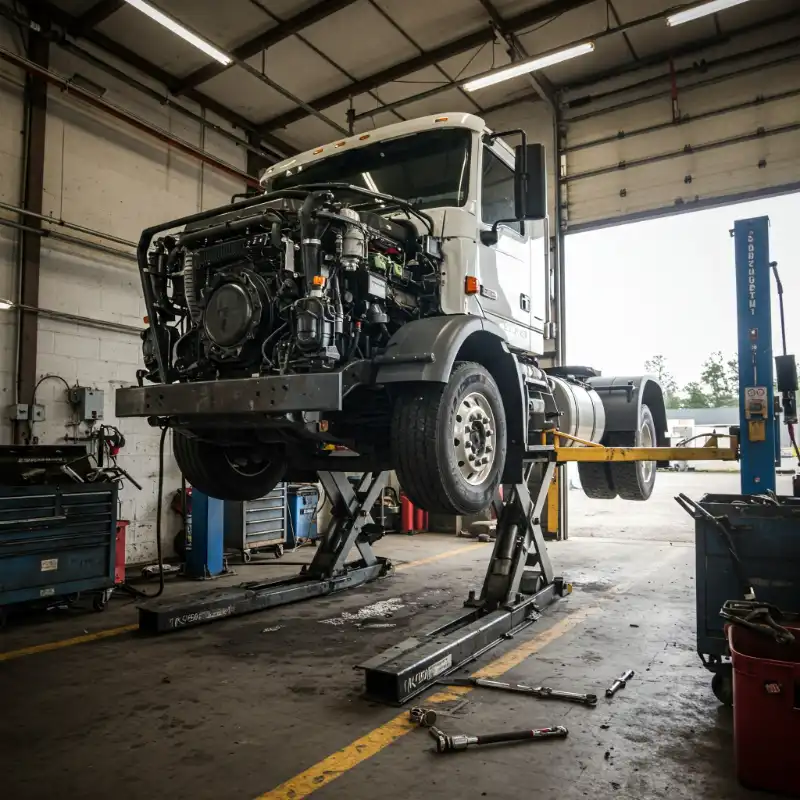When it comes to the overall health and efficiency of a diesel engine, the air filter often doesn’t get the recognition it deserves. Let’s take a closer look at how regular air filter changes impact engine performance, and why neglecting this simple maintenance task can lead to various problems.
What Does the Air Filter Do?
The air filter prevents dust, dirt, and other airborne particles from entering the engine’s cylinders. This ensures that only clean air mixes with fuel in the combustion chamber. A contaminated air filter can disrupt this delicate balance, resulting in poor combustion, reduced power output, and even damage to critical engine components. When functioning correctly, the air filter:
- Promotes optimal airflow to the engine
- Protects sensitive internal components like the cylinder walls and pistons
- Helps maintain the correct air-to-fuel ratio
The Impact of a Clogged Air Filter
A dirty air filter creates a similar restriction in your engine, blocking the airflow and forcing the engine to work harder. This can lead to a host of performance issues, including:
- Reduced Horsepower and Torque: With a clogged filter, your engine can’t get the air it needs for combustion, which leads to a decrease in power. Drivers may notice a sluggish response, especially when accelerating or climbing hills.
- Increased Fuel Consumption: When an engine is starved of air, it compensates by burning more fuel to produce the same power. This means more trips to the pump and higher operational costs—something every fleet manager wants to avoid.
- Higher Emissions: Restricted airflow often results in incomplete combustion, which leads to higher emissions. Not only is this bad for the environment, but it could also lead to compliance issues, especially for trucks operating in areas with stringent emission standards.
- Potential Engine Damage: The most critical issue with a clogged air filter is the potential for serious engine damage. When debris bypasses the filter, it can scratch the cylinder walls, damage the pistons, and wear down other internal components prematurely.
How Often Should You Change the Air Filter?
The recommended interval for air filter replacements varies depending on driving conditions and vehicle type. Generally, changing the filter every 12,000 to 15,000 miles is ideal for most applications. However, for trucks operating in dusty or harsh environments, more frequent replacements might be necessary. A good rule of thumb is to inspect the air filter during every preventive maintenance check to ensure it’s in good condition.
Signs Your Air Filter Needs Replacing
While it’s easy to overlook this component, there are a few telltale signs that indicate it’s time for a new air filter:
- Decreased Fuel Efficiency: If your MPG (miles per gallon) has dropped significantly, it’s worth checking the air filter.
- Engine Misfires: A clogged filter can cause the engine to misfire due to the restricted airflow, leading to rough idling and hard starts.
- Unusual Engine Sounds: Whistling, popping, or coughing noises are often signs of an airflow problem, which could be traced back to a dirty filter.
- Visible Dirt or Damage: Physically inspecting the filter for dirt buildup or damage is the easiest way to determine if it needs to be replaced.
Benefits of Regular Air Filter Changes
Now that we’ve covered what can go wrong, let’s look at the benefits of staying on top of air filter maintenance:
- Improved Fuel Efficiency: A clean air filter ensures the engine doesn’t have to work overtime, resulting in better fuel economy.
- Enhanced Engine Performance: With proper airflow, the engine can achieve its maximum power output, improving acceleration and overall performance.
- Longer Engine Life: Keeping harmful contaminants out of the engine helps reduce wear and tear, extending the engine’s lifespan.
- Lower Emissions: Clean filters promote complete combustion, reducing the amount of unburnt fuel and pollutants released into the air.
Choosing the Right Air Filter
Not all air filters are created equal. When selecting a replacement, it’s crucial to choose one that matches your engine’s specifications. Factors like filter material, pore size, and construction quality can greatly impact the filter’s effectiveness. Some operators opt for high-flow performance filters, but these aren’t always necessary for fleet vehicles focused on reliability and longevity.
Best Practices for Air Filter Maintenance
To get the most out of your air filters and keep your fleet running efficiently, consider the following best practices:
- Regular Inspections: Include air filter inspections in your routine maintenance checks. This will help you spot potential issues before they escalate.
- Document Replacements: Keep a log of when air filters are changed. This helps track performance over time and ensures timely replacements.
- Use Quality Filters: Avoid cutting corners by using low-quality filters. Investing in high-quality filters can save money in the long run by preventing engine damage and maintaining efficiency.
- Educate Drivers: Make sure drivers understand the signs of a dirty air filter and encourage them to report any performance issues as soon as they arise.
New Filters = Less Problems
Regular air filter changes might seem like a small maintenance task, but they have a significant impact on engine performance, fuel efficiency, and overall longevity. Keeping your filters clean ensures your diesel engine breathes easy, delivering the power, efficiency, and reliability you need to keep your fleet on the road. So, don’t overlook this critical component—breathe new life into your engine by staying on top of air filter maintenance.
If you require a new air filter in Texas, contact OTR Fleet Service today!










.webp)





























